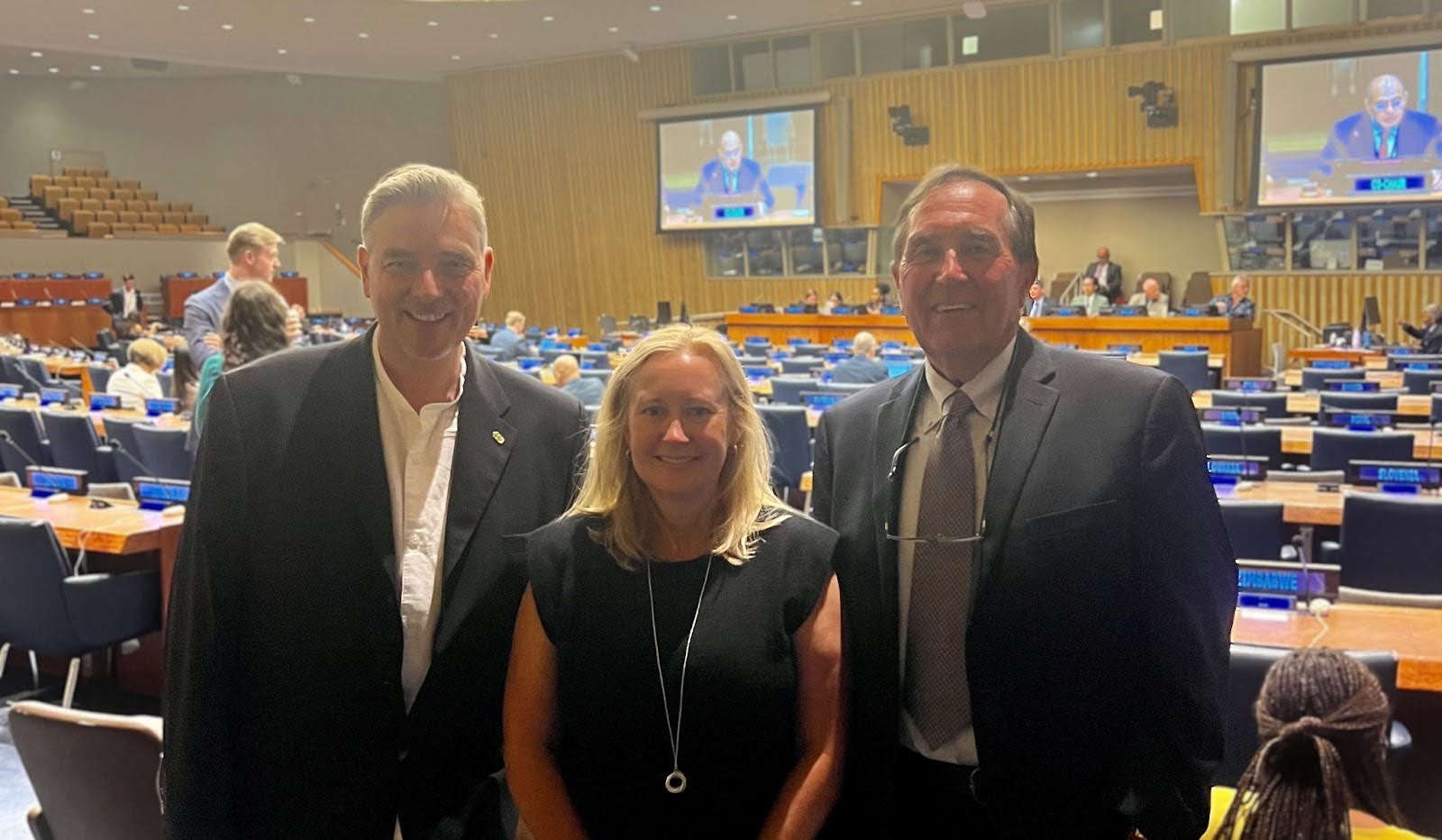
NCCOS and partners joined scientists from around the world June 17-19 in New York for the 24th meeting of the United Nations Informal Consultative Process on Oceans and the Law of the Sea (ICP-24). The three-day event, led by the UN Division for Ocean Affairs and the Law of the Sea, featured individual presentations and panel discussions with UN delegates addressing the ocean as a source of sustainable food. ICP-24 emphasized sustainable ocean foods as an area where coordination and cooperation at the intergovernmental and inter-agency levels should be enhanced, and recognized the impacts of harmful algal blooms (HABs) on the safety and security of sustainable ocean foods.
During this event, Philipp Hess (PHYTOX Director, IFREMER) discussed the biological and chemical diversity of HABs in a changing climate and related risks to food safety and security; Maggie Broadwater (ECOHAB Program Manager, NCCOS) discussed the impacts of HABs on the environment, societies and economies; and Don Anderson (Senior Scientist, WHOI) shared technologies and approaches to HAB early warning, mitigation, and control, with a focus on NCCOS-funded research on Alexandrium catenella blooms in Alaska and control technologies for Karenia brevis in Florida.
The HAB Solutions Programme, recently endorsed by the UN Decade of Ocean Science for Sustainable Development, will enhance international coordination and cooperation toward addressing the adverse impacts of HABs on sustainable ocean foods. HAB Solutions aims to enhance knowledge and understanding of the causes and effects of HABs at the level of scientists, societal stakeholders, and the public at large, through comprehensive public awareness campaigns, education initiatives, and interdisciplinary solutions that reduce the frequency and severity of HAB events and minimize their adverse effects on the social, economic and natural environments.

